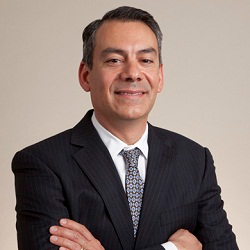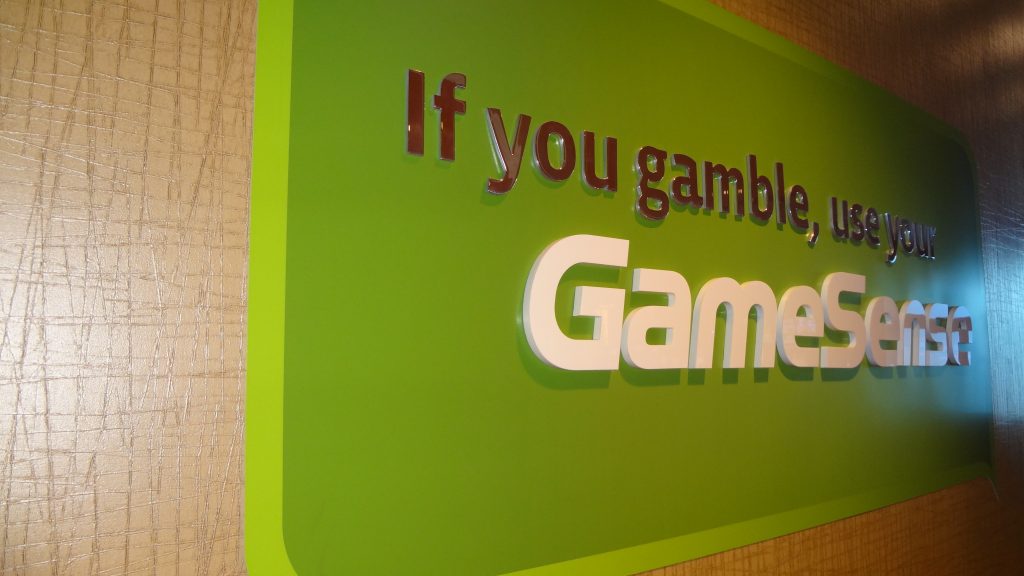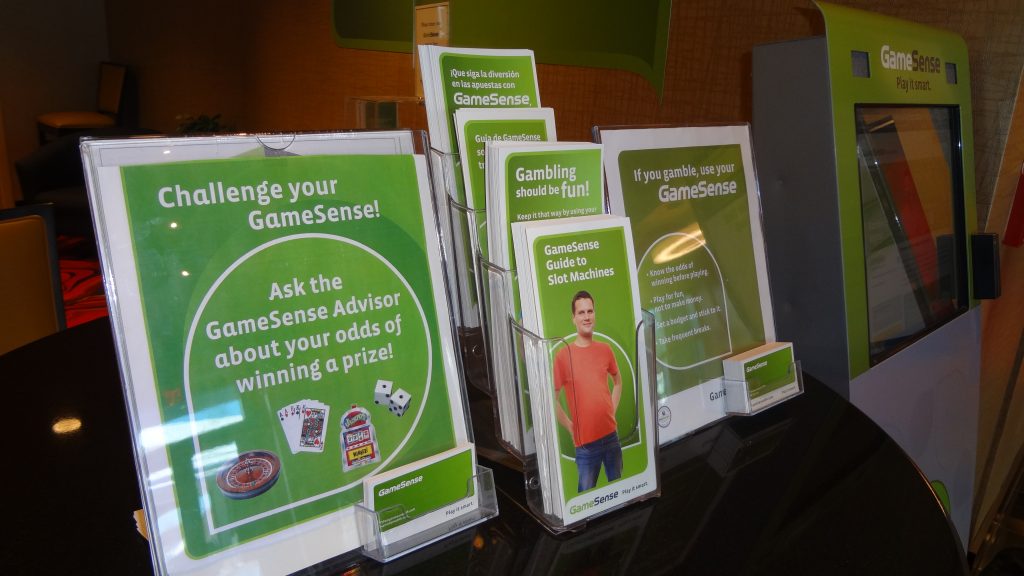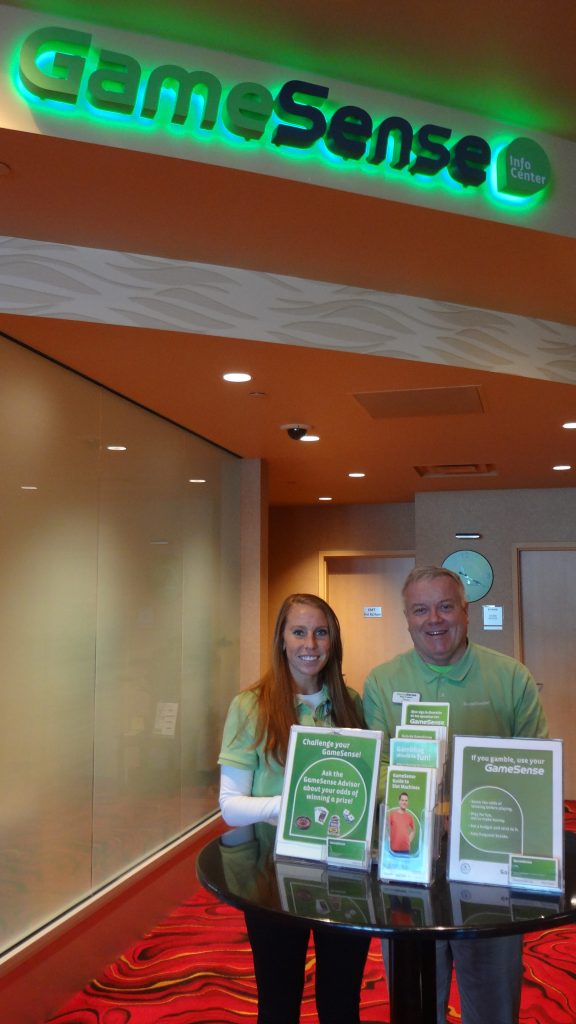Blog post from Commissioner Enrique Zuniga: The Kind of Work We Do – A Day in the Life of a GameSense Advisor
- October 24, 2016
- by MGC Communications
- 0 comments
 I am driving back from Tarrytown after the conference. That was really worthwhile, I say to myself almost out loud. I have all sorts of feelings about the journey I call being a commissioner, and times like these really seem to illustrate it.
I am driving back from Tarrytown after the conference. That was really worthwhile, I say to myself almost out loud. I have all sorts of feelings about the journey I call being a commissioner, and times like these really seem to illustrate it.
A day earlier, three colleagues and I had presented at the annual conference of the National Council on Problem Gambling. The session titled “Advocacy to the Gaming Floor, A Comprehensive Approach to Expanded Gambling in Massachusetts” was intended to provide an overview of the factors, decisions and efforts of the last few years that have culminated in the responsible gaming programs that we have in place. Programs that many industry experts acknowledge are being implemented for the first time in the United States.
In planning the presentation, we made sure we described the elements that have allowed us to do what we have done in the area of Responsible Gaming (or RG as it is known). The reasons are several: A really good gaming law and the funding for research and mitigation that came with it; the expansive, objective and cautionary approach the commission has taken; the lessons learned from other jurisdictions; the number of people who have provided invaluable input along the way; the collaboration with several stakeholders, and the terrific work that many people do, and the difference that they make.
One of those people is Amy. Amy is one of the other three colleagues presenting with me at the conference. She embodies the practice of a lot of policies and efforts around mitigation in general, and RG in particular. While my colleagues and I talk about legislative background, and implementation of policies, Amy demonstrates the meaning to our work, when she talks about the work she does and how she does it. When it’s her turn at the presentation Amy steals the show.
Amy is a GameSense advisor. She is one of a small group of people who are housed on the space right next to the main entrance to the casino. The role of the GameSense Advisor (GSA) is quite broad. Sometimes they provide a welcoming smile and inform patrons about odds and myths about gambling. Oftentimes they walk the casino floor and simply greet patrons. They are trained to be a resource but are always careful not to be intrusive. They are sensitive and respectful of people who would rather be left alone.
The GameSense advisors also administer the self-exclusion program at the casino. This program allows patrons who may want to take a break from gambling to place themselves in a list. Once in the list, a patron would not be able to collect winnings or recover losses by playing at the casino. This is meant to be a deterrent for people to continue gambling when they are experiencing difficulties with it. Those in the self-exclusion list also stop receiving casino promotions and marketing materials. Almost every state with casino gambling has a self-exclusion program though many have important variations (in most states a patron on the list can be arrested for trespassing). Many self-exclusion programs offer patrons with the option of placing themselves in the list for 6 months, one, three or five years, or even a lifetime exclusion from the casinos. Massachusetts is the only state in the U.S. with a program like GameSense administering the self-exclusion program.
Amy does not use fancy words, doesn’t use a PowerPoint but is an eloquent speaker. I’ve seen Amy presenting “a day in the life of a GameSense Advisor” before. An engaging storyteller, Amy can combine a couple of stories from her daily interactions with her insights about the casino industry to drive important points. Amy does this without mentioning that she spent at least 20 years being a blackjack and roulette dealer and saw a few too many times people who could use some kind of support, someone to talk to, or a referral to some kind of service. I suspect that all those years she must have thought about what to suggest to certain patrons, but her job probably required her to stick to procedure, wait for the patron to place their bet, and deal them in.
![]() The GameSense program (developed by the British Columbia Lottery Corporation where they have had state-run casino gambling for a couple of decades) consists in fundamentally changing the authoritative tone of talking to people about responsible gambling. This includes dropping the “responsible” term altogether. What experts in the field and the people at the BCLC seem to have figured out by doing research and evaluation over a number of years, Amy could also tell you from her years as a dealer: it is counterproductive to talk down to people, to judge, to wag your fingers in disapproval and suggest they should not be gambling. It is more productive to provide judgement-free information, to be a resource and provide positive messaging about keeping gambling fun, or “if you gamble, use your GameSense” as the tagline suggests.
The GameSense program (developed by the British Columbia Lottery Corporation where they have had state-run casino gambling for a couple of decades) consists in fundamentally changing the authoritative tone of talking to people about responsible gambling. This includes dropping the “responsible” term altogether. What experts in the field and the people at the BCLC seem to have figured out by doing research and evaluation over a number of years, Amy could also tell you from her years as a dealer: it is counterproductive to talk down to people, to judge, to wag your fingers in disapproval and suggest they should not be gambling. It is more productive to provide judgement-free information, to be a resource and provide positive messaging about keeping gambling fun, or “if you gamble, use your GameSense” as the tagline suggests.
I’m thinking back to the presentation. I can see how Amy scans the room as she prepares to talk about what she does at GameSense. I can see that there are a number of people from the industry, associations, as well as people from other jurisdictions. I recognize the director of the National Council on Problem Gambling in Singapore, whom I had met the day before, and who was really interested to learn about the Massachusetts approach.
Amy has a way of capturing the attention of the audience quickly. She talks about how people have very different understanding of odds, or the details of the games they play. She also talks about how the GSA’s go about reading people’s body language to engage with them or not. They know for example, that many in the Asian community would consider a tap on the shoulder as really bad luck. Amy talks about how just by being at the entrance to the casino, greeting people, GSA’s begin to forge relationships with patrons that can evolve into more meaningful interactions as the weeks and months go by.
Amy gets to the heart of her presentation: “Perhaps the best way to tell you about the work we do is through a story” she says. “Let me tell you about this woman, and let’s just call her Lisa.”
Amy continues:
Lisa has been coming to Plainridge two or three days a week for a few months. She comes a couple of hours at a time and she always seems to stop by and chat a bit with us. Often we engage in a good conversation. I always like to ask people how they are doing, and it’s interesting how people respond. Sometimes they think I’m asking about their health, and sometimes they think I’m asking about their luck.
Throughout these conversations, I come to learn that Lisa is a singer. In my mind this explains why I run into Lisa often. I work the weekday shift, and that is often when Lisa comes to the casino, given that Lisa works weekends.
Lisa is familiar with the Self-Exclusion program. She has been going to casinos for years. She knows that if she wanted to exclude herself from the current and future Massachusetts casinos, she would come talk to any one of us, and we would go through the required protocol and fill out the self-exclusion form.
One day, Lisa comes into the GameSense center, and she simply says: “Amy, its time.”
We go into the private office to proceed with the self-exclusion. There is a questionnaire, but I find it is more engaging to first use it to guide the conversation. I ask whether she understands what this implies. Unlike other states where a person may be arrested for trespassing, in Massachusetts you may be cited, but the central element is that you will not be able to collect any jackpots (over $1,200 USD), or recover any losses. If you are spotted on the floor, you will forgo your credits, but you will not be treated like a criminal.
The conversation takes a couple of hours, because we end up talking about what gambling has done to Lisa, and it becomes apparent that Lisa appreciates those conversations we have had in the past. It also becomes apparent that she has been struggling with her gambling and contemplating this moment for some time. It eventually dawns on both of us that by being in the self-exclusion program, Lisa and I will not have much occasion for seeing each other. Saying goodbye in this case seems more poignant than just about any other so-long.
“You’ve taken a significant step today and you should be proud,” I say as a way to wrap up the conversation.
There is a brief moment of silence. Lisa takes a deep breath and begins to sing. She has a beautiful melodic voice and needs no instrument to go with it:
“Have I ever told you how much it meant,
For all your kindness
I am blessed, and I thought that you should know
How much you’ve helped me grow
I wanna thank you
I wanna tell you this
That you’ve made me the happiest
Thank you
And if we never meet again,
You should know you’ve changed my life
Just by being a friend, oh”
“I didn’t write this song” Lisa seems compelled to say.
I didn’t know what to do with this kind of tribute. I can only say Thank you. With nothing more to say, we hugged, and Lisa left.
Amy pauses for a moment. Like everyone else in the audience, this is the first time I’m hearing this story. The back of my throat feels like there is this big lump in it. I glance towards the audience and can see a few people with tears in their eyes.
“This is the kind for work we do” Amy says.


